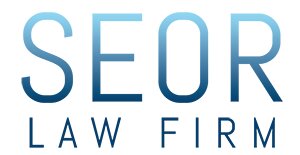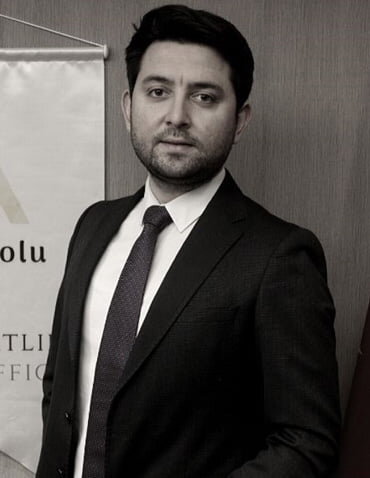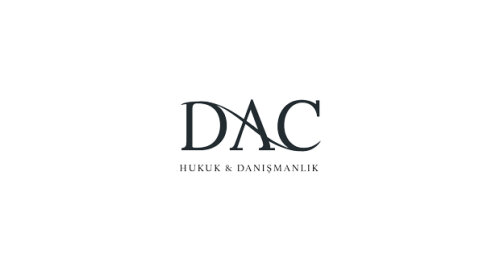Best Communications & Media Law Lawyers in Turkey
Share your needs with us, get contacted by law firms.
Free. Takes 2 min.
Or refine your search by selecting a city:
List of the best lawyers in Turkey
About Communications & Media Law in Turkey
Communications and Media Law in Turkey encompasses the regulations and legal frameworks governing telecommunication, broadcasting, digital media, and the press. It is a rapidly evolving field due to technological advancements and the increasing use of the internet. The legal landscape is shaped by both national regulations and international obligations, particularly the European Union directives, which Turkey harmonizes its legislation with. The legal framework addresses issues such as freedom of speech, privacy rights, media ownership, licensing requirements, and content regulation.
Why You May Need a Lawyer
There are several situations where individuals or organizations may require legal assistance in the realm of Communications & Media Law. These include:
- Disputes related to intellectual property rights concerning media content.
- Navigating the regulations surrounding the ownership and operation of broadcast media platforms.
- Defending against allegations of defamation or libel in digital and print media.
- Ensuring compliance with data protection laws and policies, especially with respect to personal data collected through digital media.
- Addressing violations related to content censorship or improper use of media channels.
- Applying for and maintaining licenses for broadcasting and telecommunication services.
Local Laws Overview
The key aspects of Communications & Media Law in Turkey include:
- The Law on the Amendment of the Press Law: This regulates the responsibilities and rights of media institutions and professionals.
- Electronic Communications Law: It governs telecommunications services and infrastructure, including licensing, consumer rights, and market competition.
- Law on Regulation of Publications on the Internet: It addresses content regulation, online speech, and liabilities of internet service providers and platforms.
- Data Protection Law: Governs the use and protection of personal data, ensuring that individuals' privacy rights are respected by media and communications entities.
- Radio and Television Supreme Council (RTÜK): This body is responsible for overseeing broadcast media, ensuring compliance with broadcasting principles, and issuing necessary sanctions.
Frequently Asked Questions
What are the broadcasting license requirements in Turkey?
Broadcasting licenses in Turkey are issued by the Radio and Television Supreme Council (RTÜK). Applicants must meet criteria related to financial stability, technical standards, and content regulations. Applications are subject to review and compliance with national security and public order considerations.
How does Turkish law handle defamation cases in media?
Defamation in media is taken seriously in Turkey, where both civil and criminal liabilities may arise. Truth, public interest, and good faith are common defenses in defamation cases. Legal counsel can guide on the appropriate legal strategy depending on the circumstances.
What protections exist for freedom of speech in Turkey?
Although freedom of speech is protected under the Turkish Constitution, there are limitations to ensure national security, public order, and moral values. Media laws frequently balance these rights with restrictions to prevent hate speech, incitement, and false information dissemination.
What is RTÜK’s role in broadcasting regulation?
RTÜK oversees broadcast media, grants licenses, monitors content compliance with legal standards, and enforces sanctions for violations. Its objective is to maintain media broadcasting integrity and protect public interests.
How are internet publications regulated under Turkish law?
The Law on Regulation of Publications on the Internet aims to control unlawful content. It requires ISPs and content providers to remove or block access to illegal content upon notification. Additionally, platforms must comply with data retention and user privacy regulations.
Can foreign entities own media companies in Turkey?
Foreign ownership of media companies is restricted in Turkey. For example, foreigners and foreign companies cannot exceed a certain percentage of ownership in Turkish broadcast companies. These restrictions are closely governed by both legislative and regulatory provisions.
What is the penalty for operating without a broadcasting license in Turkey?
Operating without a valid broadcasting license can result in significant fines, imprisonment, and confiscation of equipment. RTÜK actively monitors for unlicensed operations and enforces legal actions accordingly.
How does the GDPR influence Turkish Data Protection Law?
Turkey's Data Protection Law is influenced by the EU's General Data Protection Regulation (GDPR), focusing on data subject rights, data processing principles, and cross-border data transfer regulations. Companies must ensure compliance to avoid hefty fines.
Are there special regulations for online journalism?
Online journalism is subject to both general media laws and specific internet regulations. Journalists must be aware of digital content responsibilities and privacy standards to ensure compliance with both national and internet-specific legal requirements.
What legal recourse is available if my online copyright is infringed?
Individuals and companies can take legal action through civil courts for copyright infringement online. Legal options include injunctions to stop the infringement, demanding monetary compensation, and pursuing damages related to the misuse of copyrighted material.
Additional Resources
For further information and assistance, consider the following resources:
- Turkish Bar Association: Provides access to legal professionals specializing in media law.
- Radio and Television Supreme Council (RTÜK): Offers guidance on regulations and updates in the broadcasting sector.
- Information and Communication Technologies Authority (BTK): Regulates electronic communications sectors and ensures compliance.
- Personal Data Protection Authority (KVKK): Manages compliance issues and rights related to personal data.
Next Steps
If you require legal assistance in Communications & Media Law, consider the following steps:
- Identify your specific legal need by assessing the situation and potential legal concerns.
- Consult with a legal professional who has expertise in Communications & Media Law in Turkey.
- Prepare all necessary documents and evidence related to your case to expedite consultations and proceedings.
- Follow the advice of your legal counsel to ensure compliance with existing laws and regulations and to strengthen your legal position.
Lawzana helps you find the best lawyers and law firms in Turkey through a curated and pre-screened list of qualified legal professionals. Our platform offers rankings and detailed profiles of attorneys and law firms, allowing you to compare based on practice areas, including Communications & Media Law, experience, and client feedback.
Each profile includes a description of the firm's areas of practice, client reviews, team members and partners, year of establishment, spoken languages, office locations, contact information, social media presence, and any published articles or resources. Most firms on our platform speak English and are experienced in both local and international legal matters.
Get a quote from top-rated law firms in Turkey — quickly, securely, and without unnecessary hassle.
Disclaimer:
The information provided on this page is for general informational purposes only and does not constitute legal advice. While we strive to ensure the accuracy and relevance of the content, legal information may change over time, and interpretations of the law can vary. You should always consult with a qualified legal professional for advice specific to your situation.
We disclaim all liability for actions taken or not taken based on the content of this page. If you believe any information is incorrect or outdated, please contact us, and we will review and update it where appropriate.
Browse communications & media law law firms by city in Turkey
Refine your search by selecting a city.

















